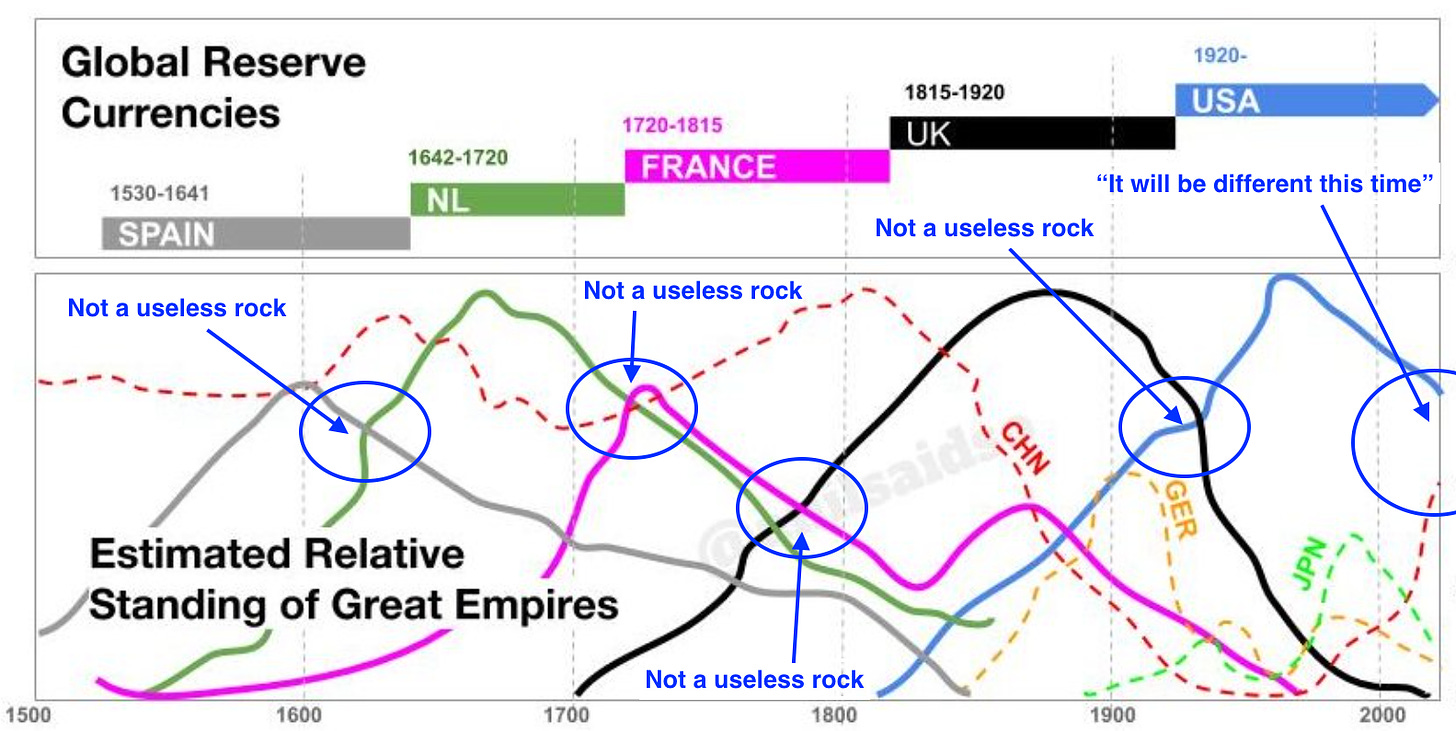Merry-go-round and round
By – Published on November 5, 2023

In the documentary “How to Live Forever,” a French centenarian was asked, “What was the happiest day of your life?”
“Armistice Day,” she said, referring to the 1918 agreement that ended World War I.
“Why?” the producer asks.
“Because we knew there would be no more wars ever again,” she says.
Merry-go-round and round
In 146 BC, the Romans had just conquered Spain, Greece and North Africa in the decades-long Punic Wars, concluding with the siege and burning of Carthage. Carthage, until then, had been one of the most affluent and powerful cities the world had ever seen.
The sacking of Carthage was the final step that solidified Rome as not one of many powers but as the central power and hegemon in the Mediterranean.
As Roman Proconsul Scipio Aemilianus watched the city burn, he began to cry. His friend and mentor, Polybius, asked why he was crying - what better outcome could a Roman have hoped for?
Aemilianus replied, “A glorious moment, but I have a dread foreboding that someday the same doom will be pronounced in my own country.”
As legend goes, he then delivered a quote from Homer, spoken 700 years earlier, “A day will come when sacred Troy shall perish, and Priam and his people shall be slain.”
Gold is Dead
In the age of central bank overreach and digital currencies, I hear people discuss Gold as a relic of the past - it used to have value, but today, it has become a “useless rock.”
“There are very few moments in history when you need to own gold, but during those moments, it’s about the only thing you want to own.” - Luke Gromen
Those “moments” are when the global reserve currency begins to experience its sunset years.
As we’ve seen a few times in the past:
But I am sure it will be different this time.
The Salmon Came Back
My wife and I put our kids in a fully outdoor elementary school for a period. There was no classroom - the “school” was organized in the forest. In their early years, our kids learned, discussed and played in the forest - all seasons - rain, wind and snow. In the Pacific Northwest, where we live, this builds tough little kids.
During the first week of the school year, the children were instructed to walk out into the forest and select a “tree friend.” Part of the curriculum was to observe the tree throughout the year. They learned that in the spring, new leaves would grow. Birds would nest in the branches all summer. Mushrooms would emerge from the bark in the fall. And in winter, stillness and quiet.
They learned that nothing governed by natural laws stays the same - but every spring, the cycle would repeat. The leaves always returned after the winter. They watched the rivers. They learned that the salmon would arrive, depart, and come back again.
They learned that our world is governed by cycles.
We say that the most undervalued asset on Wall Street is a history book. I think that same principle extends to government and culture.


Comments